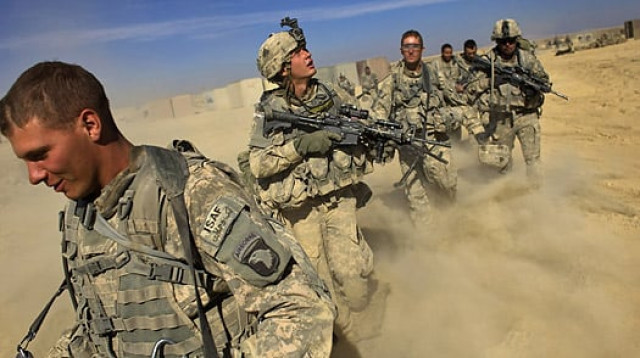‘AfPak’ post-US withdrawal
Pakistan is the lynchpin of any successful transition in Afghanistan.

The Americans and their Nato allies think they can start leaving Afghanistan after beginning the process of handing over the country to the newly raised and trained Afghan army. Seven regions will be ‘transitioned’ over the week and the total exercise could take up to two years to complete. The ‘handing over’ of Mazar-e-Sharif, Herat and Lashkar Gah — all situated away from the Pashtun-dominated south and southeast — will become test cases, and the results will be observable soon enough. There is one region, that of Bamiyan in the centre of the country, where there will be no resistance as it is Shia-dominated and is impervious to Taliban penetration. But such regions may well be subject to invasion by the Taliban once, the Americans leave.
The army and the police that will take over the task of peacekeeping and fighting terrorism are problematic in a country that ranks low on most basic socio-economic and human development indicators. There is attrition too, in the face of Taliban terrorism and there is fear that the trained forces may scatter in the face of the Taliban onslaught in which the Taliban from Pakistan — their non-Pashtun allies in Pakistan not excluded — will certainly participate. There could be a repeat of the post-Soviet withdrawal chaos and victories scored by the ‘mujahideen’ will finally be meaningless.
The ‘mujahideen’ of Afghanistan and Pakistan repeat patterns and these are all ultimately self-defeating. The two countries seem to have sunk into a ‘non-governance’ mode, their governments reading the signals wrong and hurtling towards self-isolation, made senseless by anti-Americanism. President Karzai is an ally of the US-Nato forces but can hardly hide his hatred of them; the Pakistan military is an ally of the US but no longer hides its dislike of the US. Both governments are accused by the world of double-dealing and corruption and the charges stick. Both populations agree that governance has been killed by terrorism and corruption, but are brainwashed by their ideology into choosing self-isolation. Of course, this is not to say that the US has been an angel either, especially vis-a-vis its policies in this part of the world.
For instance, it has to come around to accept the fact that Pakistan is the lynchpin of any successful transition in Afghanistan. That said, many state-supported/sponsored analysts, ex-diplomats and retired generals think the US needs Pakistan more, a formulaic self-deception that makes Pakistan commit more blunders. Pakistan’s leverage is supposed to be the Taliban who strike across the Durand Line, but the same Taliban also kill innocent Pakistanis as punishment for Islamabad’s decision to be America’s ally. Neither Kabul nor Islamabad gets along with its regional neighbours without whom there can neither be peace in Afghanistan nor Pakistan. The latter’s equation with Iran can be gauged from the fact that Pakistan’s president went to Tehran on a goodwill visit last week after a Pakistani court released Malik Ishaq, allegedly the killer of an Iranian diplomat in Multan in 2003.
Afghanistan doesn’t have an economy but is being shored up by American aid — three million of its population being sustained by Pakistan, whose economy is itself hurtling towards a meltdown. But there is light at the end of the tunnel, that is, if the recent softening of Pakistan’s ghairat-based reflex towards the US, and the making of right sounds in the direction of India, are followed up in earnest. Let us not repeat the blunders of General Ziaul Haq after the Soviet withdrawal from Afghanistan.
Published in The Express Tribune, July 19th, 2011.















COMMENTS
Comments are moderated and generally will be posted if they are on-topic and not abusive.
For more information, please see our Comments FAQ